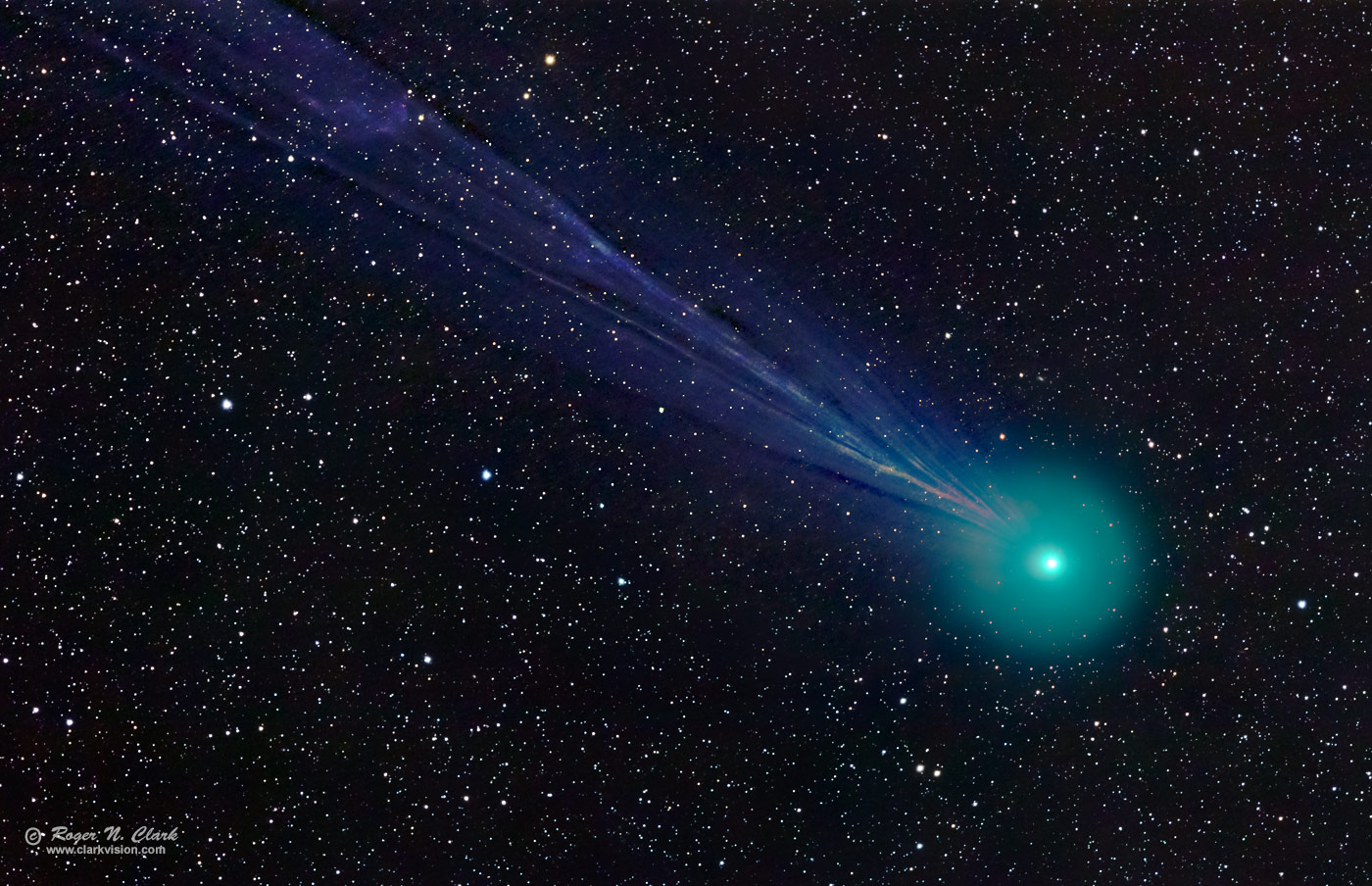| Home | Galleries | Articles | Reviews | Best Gear | New | About | Contact | Gallery Index | Previous |
Next |

| Home | Galleries | Articles | Reviews | Best Gear | New | About | Contact | Gallery Index | Previous |
Next |

Comet Lovejoy C/2014 Q2 shows an intricate ion tail On January 12, 2015. Image from Mauna Kea, Hawaii at the 9,200 foot level. Technical. This image was obtained with a Canon 7D Mark II 20-megapixel digital camera and 300 mm f/2.8 L IS II lens at f/2.8 and ISO 1600. No dark frame subtraction, no flat fields. Tracking with an Astrotrac and no guiding. The total exposure was 10.5 minutes (twenty one 30-second exposures).
During the approximately 16 minutes to make the exposures, the comet moved significantly. The 21 exposures were aligned in two ways: align on the comet head so the combined image had stars trailing, then align on the stars with the comet trailing. For the align on the comet image, the stars were deleted, and for the align on the stars image, the comet was deleted, then the two images combined. To delete stars and not destroy detail in the comet's tail, I found that methods on the internet were poor, so I deleted the stars using the healing brush in photoshop in a long and tedious process. Removing the comet was easier: use the comet only image, blur it and subtract it from the image aligned on the stars.
The Exposure Factors, CEF, CEFA are measures of the relative amounts of light received from a subject. It can be used to fairly compare wildly different lens/telescope apertures and exposure times. For this image:
Modern DSLRs like the 7D Mark II include on sensor dark current suppression and low fixed pattern noise at ISOs around 1600 and higher, making no need for dark frame subtraction. Modern raw converters correct for light fall-off and also correct for hot/dead/stuck pixels. This makes processing low light images easy: simply align and average.
To learn how to obtain stunning images like this, please visit my Extensive Articles on Photography .
See my review of the Canon 7D Mark II and why it is so good for astrophotography: Canon 7D Mark II sensor analysis.
Keywords to this image = astrophoto-1 night low-light digital_astro comet canon_7d2
Image ID: comet-lovejoy-rnclark-mauna-kea-c01.15.2015.0J6A3169-89_h-c1-1400us.jpg
| Home | Galleries | Articles | Reviews | Best Gear | Science | New | About | Contact |
Last updated November 03, 2025